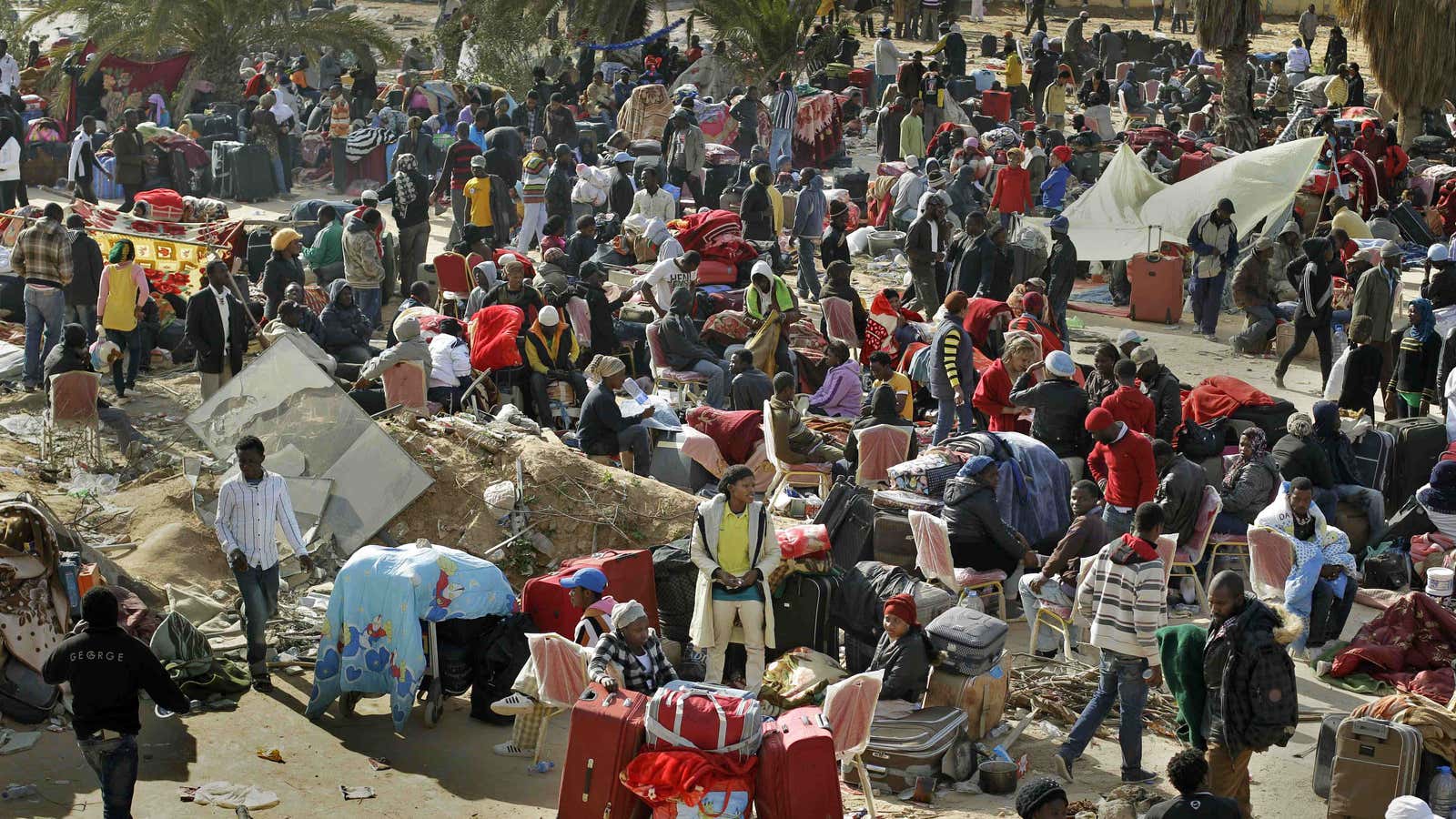Failing to stem the tide of refugees arriving Europe, Italy and the rest of the European Union have agreed to pay Libya’s Government of National Accord (GNA), the UN-backed interim government that is struggling hold control of the country, to keep them from arriving in Italy and instead put them into detention camps in Libya.
The accord signed Feb. 3, provides for Italy to pay €220 million ($236 million) to the Libyan coastal guard and provide training to help them catch the vessels—primarily rubber dinghies. The Libyan coast guard will be charged with sending the boats back to Libya and putting people into camps. The political instability of Libya is such that there would be little guarantee of the conditions in which the migrants would be kept, according to Arjan Hehenkamp, general director of Médicins Sans Frontières (MSF).
The move effectively chokes off migrants from the so-called Central Mediterranean route between Libya and Sicily. That route became the most trafficked last year after Turkey agreed to keep migrants from reaching Europe via the Eastern Mediterranean and the Balkans into Greece. Last year over 181,000 refugees came to Italy via the Central Mediterranean route while more than 4,500 died at sea. Currently, most of the migrants and refugees are rescued at sea by the Italian coastal guard, and end up in shelters in Italy, elsewhere in Europe, or are given repatriation orders.
The Feb. 3 agreement—as well as the US administration’s attempt to ban refugees—underscores the lack of Western welcome faced by people fleeing war and instability in the Middle East. The detention centers in Libya have “no procedure” to handle an influx, Hehenkamp said, and are simply warehouses managed by militias, where abuses are common. MSF has access to a few camps around Tripoli, and has found under detention at least 40 asylum seekers holding documentation of their status of refugees. Two have since been freed and put under the care of international humanitarian authorities. The UN High Commission for Refugees (UNHCR) has called the conditions of migrants currently held in Libya “deplorable.”
A spokesperson for the European Council wrote in a statement that “one of the priorities expressed at the summit by the leaders was to ensure adequate reception capacities and conditions in Libya for migrants,” and that the signatories of the agreement “reaffirmed their determination to act in full respect of human rights, international law and European values.”
But this pledge may be impossible to fulfill in the current political climate in Libya, according to MSF and other organizations, such as Amnesty International, that have strongly criticized the deal. “It’s an illusion to pretend that at the moment there is a partner [in Libya] that you can work with,” Hehenkamp said. The agreement itself notes that “efforts to stabilize Libya are now more important than ever, and the EU will do its utmost to contribute to that objective.”
According to European Council president Donald Tusk, the agreement “should help reduce the number of irregular migrants and save lives at the same time.” In 2008, Italy and Libya made a similar pact that did halt the flow of migrants leaving from Africa until 2011, when the Libyan civil war erupted. But that agreement between Italy’s Silvio Berlusconi and Libya’s Muammar Gaddafi didn’t allow anyone to get into the detention centers to check conditions, which were described as horrific by those detained there, said Hehenkamp.
“They are saying they want to save lives at sea,” says Hehenkamp, “but their ultimate motivation is to keep people from coming to Europe.” Indeed, the Mediterranean has now become Europe’s impenetrable wall. While Tusk may celebrate the accord as an “important and encouraging sign that things are about to change for the better,” Iverna McGowan, a director of Amnesty International, contended that “this plan is just the latest, but perhaps the most callous indicator of European leaders turning their back on refugees.”
Understandably, considering populist movements throughout the continent, European leaders “are scared of political consequences” brought on by the migrant crisis, said Hehenkamp. But without progress toward stability throughout the Middle East, the refugee problem won’t go away. People fleeing war and repressive regimes will increasingly turn to illegal smuggling operations. ”[Migrants and refugees] will find a way [to reach Europe],” Hehenkamp said, just a more dangerous and difficult one. “More people will profit from it,” he says,
